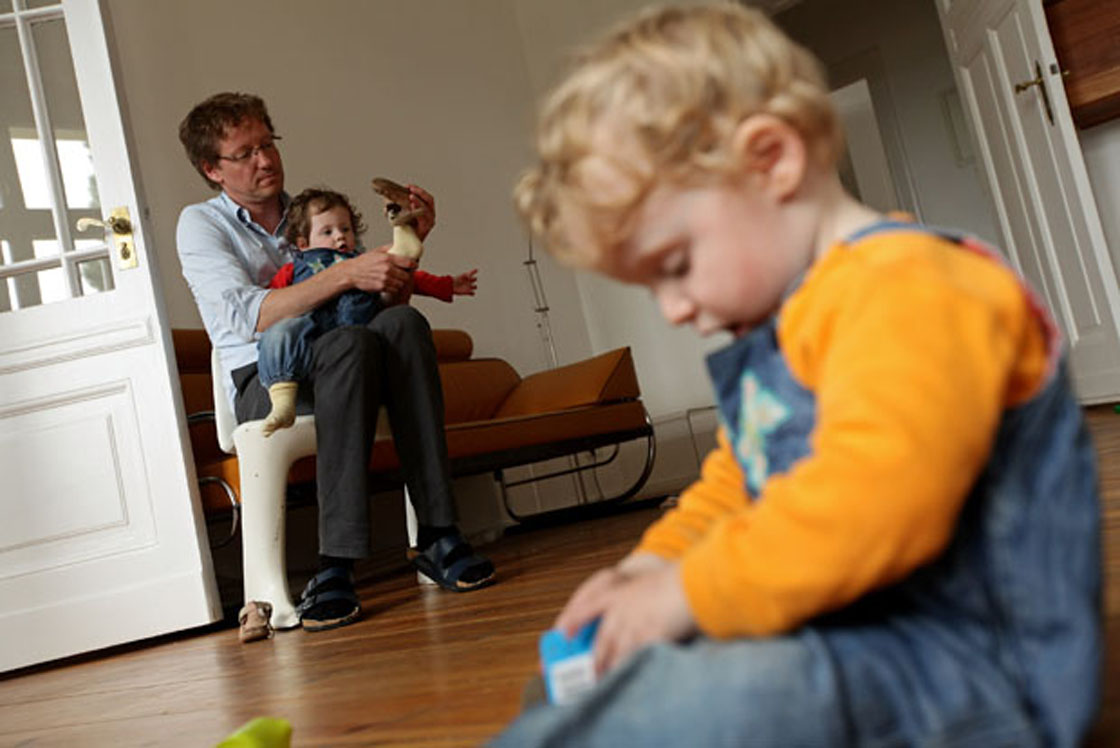TORONTO – Your son may be on the mischievous side, skipping class and ignoring curfews while his sister is on the honour roll and helps with chores around the house. But a new Canadian study urges parents to avoid treating their kids differently – doing so affects the entire family’s household dynamic, their research suggests.

Acting differently around siblings negatively affects not only the child on the receiving end of negative attention but their siblings, too, according to lead researcher Dr. Jennifer Jenkins.
“It’s not just about individual favouring or disfavouring. It’s about a family dynamic that occurs and shapes the whole family,” said Jenkins, who is the Atkinson Chair of Early Childhood Development and Education at the University of Toronto.
Even the child who gets the most positive attention hurts from this disparity, she warned. All siblings face some mental health issues from differential parenting – aggression, trouble with relationships, anxiety and attention deficit.
“It’s experiencing divisiveness in the family. Even though they’re favoured, there’s this sense of some unfairness. It’s uneasiness and it doesn’t foster good sibling relationships,” she told Global News.
400 families studied in Canadian research
Researchers from the University of Toronto and McMaster University in Hamilton, Ont. spent time with 400 families, interviewing parents and watching them interact with their children in their own homes. The families had up to four kids and they were between two and five years old.
- Posters promoting ‘Steal From Loblaws Day’ are circulating. How did we get here?
- Video shows Ontario police sharing Trudeau’s location with protester, investigation launched
- Canadian food banks are on the brink: ‘This is not a sustainable situation’
- Solar eclipse eye damage: More than 160 cases reported in Ontario, Quebec
Previous research compared how the sibling who didn’t get the positive encounters with their parents fared compared to the favoured sibling. Jenkins says this is the first longitudinal study that looked at the entire family’s dynamic along with how the negative experiences hurt one sibling.
“It’s really that element of looking at what everybody in the family gets that’s novel and different from what’s gone on before,” she told Global News in a phone interview.
Parents didn’t outright say they favoured one child more than another.
Instead, the researchers took into account mothers’ reports and observed how the family interacted with each other as they played with toys, built a model or read together.
“Some kids will get their parent being more involved, engaged, with one than another. Or the parent will be more negative toward one child than they are with another,” she said, explaining that in those cases, parents might be more critical, harsh or irritated with their kids.
Jenkins stressed that it’s not intentional; some parents simply gel better with one child or his brother or sister is giving mom and dad a hard time.
“Parents aren’t setting out to be angrier with one than another. That’s elicited by what the kids are up to,” she said.
And even though the kids were only toddlers to five-year-olds, parents shouldn’t assume that they aren’t picking up on differences.
“Kids are very emotionally attuned to their environments,” she said.
Effects of differential parenting
Previous studies looked into what happens to these siblings who grow up with differential parenting.
In these cases, kids don’t necessarily rehash the difference between how the kids were treated, but how unfair it was.
“That unfairness has been shown to be linked to more mental health problems. What that means to me is that parents have to work hard to explain to children why differences are occurring between them,” she said.
Simply put, explain to your kids why one child is getting more attention than another. Let them know their younger brother is getting more attention because he’s been crying lately or has trouble sleeping.
Some kids cry, are needy or anxious when a parent is away. These are versions of depression or anxiety in children. Meanwhile, other kids act out, get angry, or have trouble concentrating.
“It looks different than adults but it’s the same types of emotional-based problems,” Jenkins said.
The study notes that mothers with risk factors – single parent, stressful work-life balance, socioeconomic class troubles – were more likely to show differential treatment.
carmen.chai@globalnews.ca
Follow @Carmen_Chai//




Comments